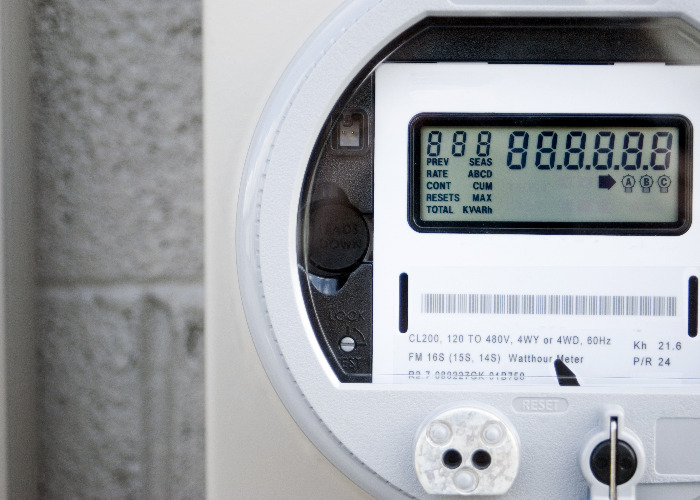Will smart meter tariffs be a rip off?

Trials of ‘time of use’ tariffs for smart meter users have had surprising results.
The roll out of digital smart meters could see the creation of new smart meter ‘time of use’ tariffs that hike the cost of power when households need it most.
Ofgem has suggested that energy suppliers may develop new tariffs to encourage households to change how - and when - they use energy, in order to make savings and relieve pressure on suppliers.
These are likely to be at peak times for energy use, such as mornings and evenings.
But trials by British Gas, where it has doubled the cost of power at peak times, have shown not everyone will benefit.
Smart meters
The Government wants every home in the UK to have a smart meter by 2020.
Digital smart meters will allow energy suppliers to get real time electricity and gas readings from households.
The scheme is being pitched as an end to estimated bills and a way for households to save money. It won’t be the device itself that makes these savings; instead it’s hoped households will change their behaviour to help lower bills.
The £11 billion project will be paid for through slightly higher energy bills, but the Government reckons it will help households save more than £17 billion as the data helps us change the way we choose to use energy.
Save on energy - compare tariffs and switch
Smart meter tariff trial
In 2014 Ofgem commissioned Northern Powergrid and the University of Durham along with British Gas to trial smart meter 'time of use' tariffs.
The project was intended to see how different scenarios would impact demand on the grid for electricity consumption.
British Gas trialled a 'time of use' tariff with 600 willing smart meter users, involving three different pricing tiers.
It put its standard tariff electricity prices up by 99% for peak hours and reduced the standard tariff charge by 4% for use during the day and by 31% during off peak hours at night.
The experiment saw peak consumption fall 13.7% during the week and by 8.2% over the weekend. Overall consumption fell by 5.43%.
As a result, 60% of customers saved an average of £31 over the trial. However, 40% lost an average of £24.
That said 95% of those taking part in the project said they would choose a multi-rate tariff over a standard tariff if it was made available.
Setting the record straight
There have been some reports that the British Gas trial tariff experiment could be forced upon households.
But British Gas says the trial was not carried out with the intention of a launch nationwide, but rather to look at the impact it had on how households use energy.
At the moment it is running a more realistic trial involving 4,000 people who are offered free electricity on Saturday and Sunday between 9am and 5pm.
British Gas says this pilot scheme features a tariff that is more likely to be introduced, encouraging households to use more power at weekends.
It’s been running since 2014, but as yet there are no figures about whether people are actually making savings on their bills as a result.
Win £100 every day in November
What other firms are planning
We contacted the other Big Six energy companies to find out what they had planned for 'time of use' tariffs.
npower told us it hadn’t trialled any new tariffs for smart meters. E.ON also said it wasn’t currently trialling smart meter tariffs, but argued there was a huge opportunity for households to benefit from this type of tariff in the future.
A spokesperson commented: “The key point to note is that it will be entirely up to customers to choose which type of tariff they’re on; some customers will benefit from this type of tariff and cheaper rates at certain times, and some will not. This is exactly the same for customers choosing to take Economy 7 and Economy 10 tariffs today simply because these tariffs better suit their lifestyle needs. Smart meters will allow us to offer more innovative tariffs in the future but customers will still be able to access all tariff types.”
A spokesperson for SSE said: “SSE has no plans to introduce 'time of use' tariffs for our smart meter customers. Any future decisions will be based on customer demand to reflect clear and fully tested benefits for customers.”
Scottish Power and EDF did not respond by the time of publishing.
Whatever happens, the Department of Energy & Climate Change says households would not be forced to switch from a standard tariff to a 'time of use' one.
Ofgem said: “Smart meters and 'time of use' tariffs will give consumers greater visibility and control over their energy use, and will help them to engage more in the energy market.
“'Time of use' tariffs offer cheaper deals to consumers who use electricity at times when it is less expensive to produce and transport.”
Save money on household bills
Smart meters can help you make better energy choices that will help you save on your bills.
But there are plenty of other things you can do. Check out our tips in How to save money on your energy bills .
You might also be able to cut costs with the new NatWest Reward current account. It pays 3% cashback on household bills, including energy bills. See how much you could save with our calculator below and get the chance to win £100 in our prize draw!
Now take a look at these:
The UK's worst energy companies
Comments
Be the first to comment
Do you want to comment on this article? You need to be signed in for this feature